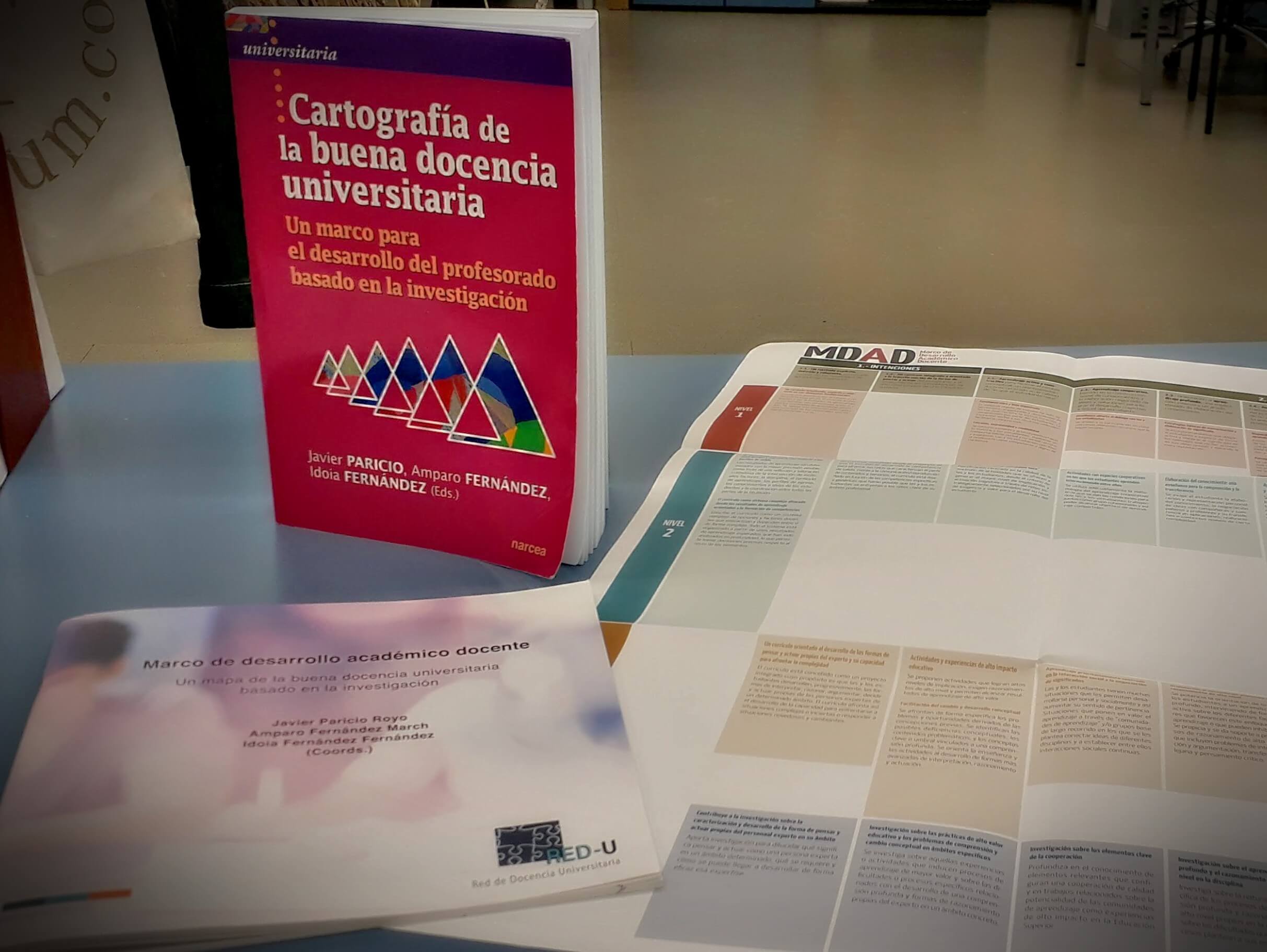The Spanish Network in Higher Education has published a book, a guide and a map resulting from collaborative work in university teaching
The Spanish Network in Higher Education has published a book, a guide and a map resulting from collaborative work in university teaching
The presentation was carried out at the EuroSoTL Congress, co-organised by Issolt, the University of the Basque Country and the RED-U network, on the 13th and 14th of June in Bilbao.

Javier Paricio and Idoia Fernández are the authors of the paper “Itinerarios hacia la buena docencia: un mapa para el viaje”(Itineraries towards good teaching: a map for the journey), in which they have exposed the “Marco de Desarrollo Académico Docente (MDAD)” (Framework of Academic Teaching Development), a project launched by the RED-U network. The RED-U network, of which the UPF is a member, is a non-profit organisation which aims to be a meeting place for reflection and learning about the quality of university teaching.
The Marco de Desarrollo Académico Docente (MDAD), or Framework of Academic Teaching Development, is the project building an up-to-date and research-based vision of what good university teaching means through the exposition of 15 dimensions and 4 steps to move forward progressively. All the descriptors are based on ongoing research, as documented and referenced in the book “Cartografía de la buena docència universitària” (Cartography of good university teaching), which was recently published by Narcea
How is it structured?
The MDAD Framework is organised into 3 blocks corresponding to 3 fundamental questions:
- What do we teach? Objectives, curricular planning
- How do we teach? How do they learn? Teaching and learning processes
- Foundations: Why do we teach what we teach and why do we do what we do?
It is around these 3 blocks that the dimensions are developed:
Block I:
- Curricular definition and coherence
- Value and meaning of the curriculum
Block II:
- Active and constructive learning
- Co-operative learning
- Orientation to deep learning
- Auto-regulation
- Student-teacher interaction
- Evaluation as a tool for learning
- Constructive learning environments
Block III:
- Professional and disciplinary knowledge
- Knowledge of higher education
- Ethical values and social and institutional engagement
- Co-ordination and contribution to the collective institutional project
- Improvement and teaching innovation
- Research into higher education
The MDAD Framework does not prescribe a path, it is a reference tool to revise and design the training and politics of teaching staff, to evaluate themselves, or to highlight individual and collective objectives for teaching quality. The MDAD Framework is flexible, it can be revised and reformed and its applications are yet to be defined. RED-U has already considered several different possibilities which will be debated at its annual Assembly of Partners.
